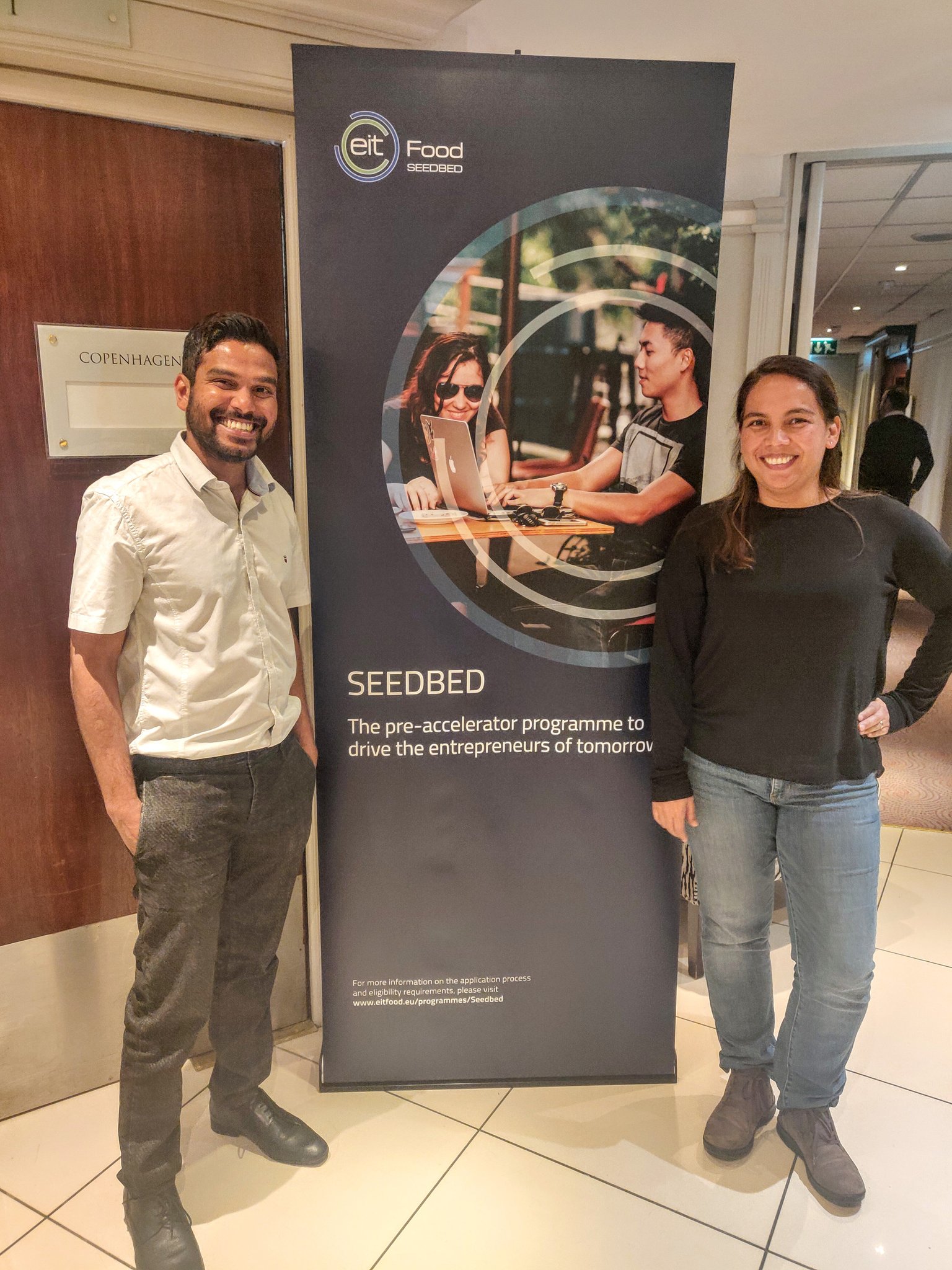The big picture: using wildflower strips for pest control
And they said it would never work…
If you followed this year’s BASF Sustainability Challenge, then you will know our three teams of early career researchers went to Germany and blew those BASF boffins away with their ideas for agri-tech innovations.
You could be forgiven for thinking this would be the end of the story – a fun, yet purely hypothetical, diversion from the daily grind of lab work. But fast forward 12 months, and two of the three teams assembled as part of that process have not only persevered but found fledgling success in the cut-throat world of science-based start-ups.
Team Hectare have been selected as one of eight finalists battling it out for €100,000 in a pitching contest to be held at, Slush, the world’s leading start-up event.
And the Th!nkFood crew have made it onto Stage Two of the Shake Climate Change Programme, which provides expert training and mentoring, with a potential £140,000 worth of investment at the end of it.
All of which is brilliant, and of course we can’t really take any of the credit – but just try stopping us.
The Hectare
It’s fair to say that when ‘Team Hectare’ (postdocs Chiara Gandini, Florian Hahn, Marcos Pardelo-Perez and PhD student, Ewan Richardson) signed up for an entrepreneurship course last November, they initially did so more out of curiosity than any sort of expectation.
They did at least enjoy it sufficiently to take the next step; entering a Hackathon jointly organised with BASF, which provided the perk of a trip to the German industrial giant’s agricultural base south of Frankfurt, where they got to pitch their agritech idea to senior staff.
“We went to BASF looking for backing to set up, essentially, a ‘vertical farm for wheat’. This fairly ambitious idea was well received by the sustainability team there, and we were invited to meet those at the company with overlapping interests,” explains Ewan.”
The science of indoor commodity-crop production is still in its infancy; only NASA and a group at Utah State University have investigated it in detail. But since the end of that research program, almost two decades ago, commercial vertical farming has been propelled by a series of technological advancements, including LED lighting, automated plant care and aeroponics technologies.
“We realised that almost nobody is looking at the biology and genetics of plants growing in vertical farms. Certainly not for wheat. Well, Rothamsted has 175 years of data on wheat. What better place to start in the search for the perfect indoor-wheat variety. So, we’re going to build a miniature vertical farm and calculate what is needed to make the cultivation of wheat indoors a sustainable option.”
Which is why Chiara will present their idea in Helsinki at Slush 2019, billed as ‘the world’s leading start-up event’, with 2000 potential investors in attendance.
The Research Pitching Competition at Slush gives the eight finalists pitching training - which is useful, as they then have to give 3-minute pitch in front of an audience of heavy hitters, with the winner receiving €100,000 to advance their idea.
Th!nkFoodApp
Th!nkFood (better known by their alter-egos Sajeev and Vashti) were accepted onto the EIT seedbed pre-accelerator programme, one of only 18 teams selected from across Europe out of 120 applicants.
As part of the programme, they got a 4-day residential boot camp in Belfast focusing on business model discovery; €10,000 to cover travel and subsistence for the programme (including potential customer visits, attending trade shows and events) and business pitch training.
And it must have really helped as Th!nkFood entered – and successfully made it through to Stage 2 – of the Shake Climate Change Programme. With a potential £140,000 plus mentoring from leading science, tech and business experts up for grabs, its exciting times for the team, whose idea integrates in one app the convenience of online shopping and recipe ideas, with information on sustainability, health and nutrition.
The whole entrepreneurial journey has been a great source of exposure and learning says Sajeev.
“Going through the courses at Rothamsted, followed by the BASF Agricultural Sustainability Challenge helped us lay the initial platform for our idea. The EIT Seedbed programme elevated this further by training us on how to engage with potential customers and end-users. As a part of our customer discovery process, we have had over 100 customer conversations with food delivery services, food manufacturers, and retailers.”
